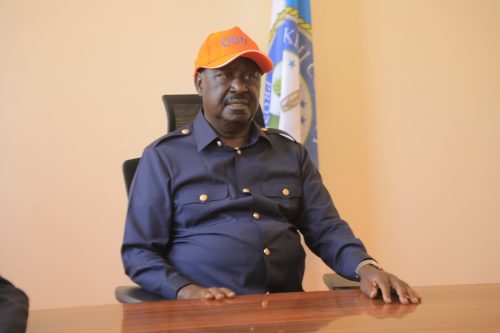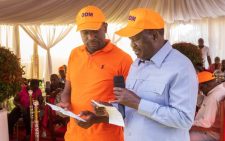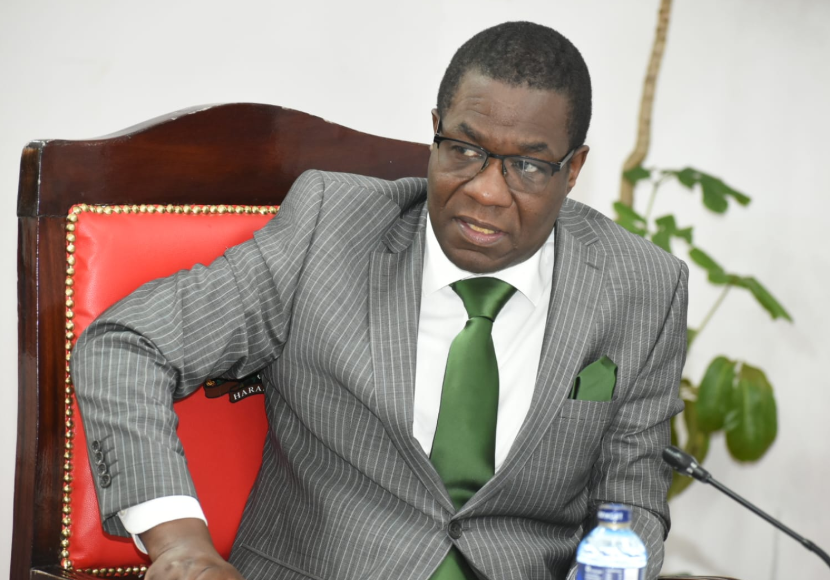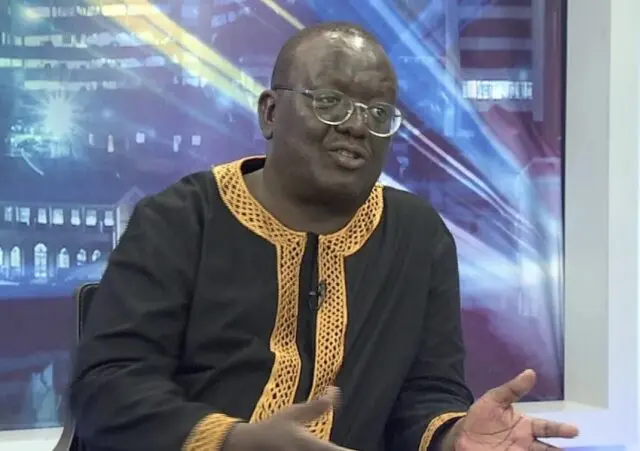Raila insists he is not in government

Orange Democratic Movement (ODM) leader Raila Odinga has categorically dismissed speculation suggesting that he has joined President William Ruto’s government.
He clarified that it was, in fact, Ruto who reached out to his camp, seeking assistance in addressing the myriad challenges that have increasingly crippled his administration.
Speaking during the burial of Laban Murungi in Wiiru, Maara Constituency, Tharaka Nithi County, on Wednesday, March 26, 2025, Raila firmly reiterated that while his team had been instrumental in providing guidance and expertise aimed at resolving urgent national crises, they had not compromised their role as the opposition.
“Kwa hivyo hakuna makosa yale sisi tumefanya. Mimi sijaenda kwa Ruto, yeye alikuja kwetu,” Raila asserted, emphasising that his involvement was not one of political alignment but rather a necessity to safeguard national stability.
“Lakini tulisema sisi hatuingii kwa serikali lakini lazima tutatue shida hii ambayo iko hapa.”
According to the veteran politician, President Ruto was compelled to seek external counsel following mounting pressure from widespread public protests, which saw citizens vehemently reject the contentious Finance Bill 2024 while simultaneously calling for his resignation. Raila explained that, at first, Ruto had refused to sign the bill into law, only to later dissolve his cabinet in what appeared to be a desperate attempt to restructure his government in response to the growing unrest.
“Walikuwa na shida juu watu walikuwa wanasema ‘Ruto must go’ na ‘Finance Bill must go.’ Akasema ati haweki sahihi Finance Bill, akarudi akasema amevunja serikali sasa akataka kuunda serikali mpya. Tukampatia wataalamu,” Raila explained, suggesting that his camp had merely lent expertise rather than integrating itself into the administration.
Despite these developments, Raila remained resolute in his stance that he had not in any way joined the Kenya Kwanza government. He stressed that while his team had temporarily seconded skilled individuals to assist in governance matters, their engagement remained purely advisory.
“Hatujaingia huko. Sisi tumeazima yeye leaders. Hatujaingia huko. Raila hajaingia huko. Mimi si waziri katika serikali ya Ruto,” he declared emphatically.
Raila further turned his attention to the state of devolution, expressing deep concern over what he described as the inefficiency and stagnation of county governments. He argued that devolution, as envisioned in the 2010 Constitution, was failing to reach its full potential due to the individuals currently entrusted with its implementation.
He lamented that, had the architects of the 2010 Constitution remained in key decision-making roles, Kenya’s devolved governance system would be significantly more effective in addressing the needs of its citizens at the grassroots level.
“Ugatuzi haifanyi kazi vizuri juu wale wako pale hawatambui mambo ya ugatuzi. Ingekuwa wale watu ambao walileta hii katiba ndio wale pale juu, mngeona tofauti mingi zaidi. Ugatuzi ingefanya kazi zaidi,” he remarked.
Martha Karua alliance
In his speech, Raila also reflected on his long-standing political alliance with veteran leader Martha Karua, underscoring their joint efforts over the years in advocating for democratic reforms.

He recalled how they had traversed the country together, engaging with the electorate in a bid to champion a progressive political agenda.
Raila maintained that despite the political turbulence Kenya had experienced, the country must continue forging ahead while fostering unity and rejecting divisive politics.
“Ubaguzi hatutaki. Nchi kama iko na shida tunatatua. 2027 lazima tuingie kwa kiwanja. Lakini hivi sasa lazima nchi iendelee juu tukikataa watu wataungua,” he warned.
Constitution
Turning his focus to constitutional matters, Raila voiced his discontent with the current governance framework, arguing that Kenya’s political system deviates significantly from the traditional Westminster model. He pointed out that, in a Westminster-style government, there is a clear distinction between the ruling government and the opposition.
However, he noted that Kenya’s constitution had instead established a rigid separation of powers between the executive, the legislature, and the judiciary.
He criticised this arrangement, stating that the legislature, rather than remaining independent and acting as an oversight body, had become entangled with the executive, thereby compromising the democratic checks and balances that should exist between the two arms of government.
“This new constitution is not the constitution that we had. It is not a Westminster constitution. A Westminster one has opposition and government. Lakini hii imeseparate legislature, executive, and judiciary. Now all of them are faulting the executive. Bunge inaoversight the executive; it should not be part of the executive,” Raila observed.













